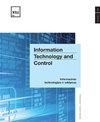A Multi-Channel Text Sentiment Analysis Model Integrating Pre-training Mechanism
IF 2
4区 计算机科学
Q3 AUTOMATION & CONTROL SYSTEMS
引用次数: 0
Abstract
The number of tourist attractions reviews, travel notes and other texts has grown exponentially in the Internet age. Effectively mining users’ potential opinions and emotions on tourist attractions, and helping to provide users with better recommendation services, which is of great practical significance. This paper proposes a multi-channel neural network model called Pre-BiLSTM combined with a pre-training mechanism. The model uses a combination of coarse and fine- granularity strategies to extract the features of text information such as reviews and travel notes to improve the performance of text sentiment analysis. First, we construct three channels and use the improved BERT and skip-gram methods with negative sampling to vectorize the word-level and vocabulary-level text, respectively, so as to obtain more abundant textual information. Second, we use the pre-training mechanism of BERT to generate deep bidirectional language representation relationships. Third, the vectors of the three channels are input into the BiLSTM network in parallel to extract global and local features. Finally, the model fuses the text features of the three channels and classifies them using SoftMax classifier. Furthermore, numerical experiments are conducted to demonstrate that Pre-BiLSTM outperforms the baselines by 6.27%, 12.83% and 18.12% in average in terms of accuracy, precision and F1-score.一种集成预训练机制的多通道文本情感分析模型
在互联网时代,旅游景点评论、旅游笔记和其他文本的数量呈指数级增长。有效挖掘用户对旅游景点潜在的意见和情感,有助于为用户提供更好的推荐服务,具有重要的现实意义。结合预训练机制,提出了一种多通道神经网络模型Pre-BiLSTM。该模型采用粗粒度和细粒度相结合的策略提取评论、游记等文本信息的特征,以提高文本情感分析的性能。首先,我们构建三个通道,使用改进的BERT和带负采样的skip-gram方法分别对词级和词汇级文本进行矢量化,从而获得更丰富的文本信息。其次,利用BERT的预训练机制生成深度双向语言表示关系。第三,将三个通道的向量并行输入到BiLSTM网络中,提取全局和局部特征。最后,该模型融合了三个通道的文本特征,并使用SoftMax分类器进行分类。数值实验结果表明,Pre-BiLSTM在准确率、精密度和f1分数方面分别比基线平均高出6.27%、12.83%和18.12%。
本文章由计算机程序翻译,如有差异,请以英文原文为准。
求助全文
约1分钟内获得全文
求助全文
来源期刊

Information Technology and Control
工程技术-计算机:人工智能
CiteScore
2.70
自引率
9.10%
发文量
36
审稿时长
12 months
期刊介绍:
Periodical journal covers a wide field of computer science and control systems related problems including:
-Software and hardware engineering;
-Management systems engineering;
-Information systems and databases;
-Embedded systems;
-Physical systems modelling and application;
-Computer networks and cloud computing;
-Data visualization;
-Human-computer interface;
-Computer graphics, visual analytics, and multimedia systems.
 求助内容:
求助内容: 应助结果提醒方式:
应助结果提醒方式:


